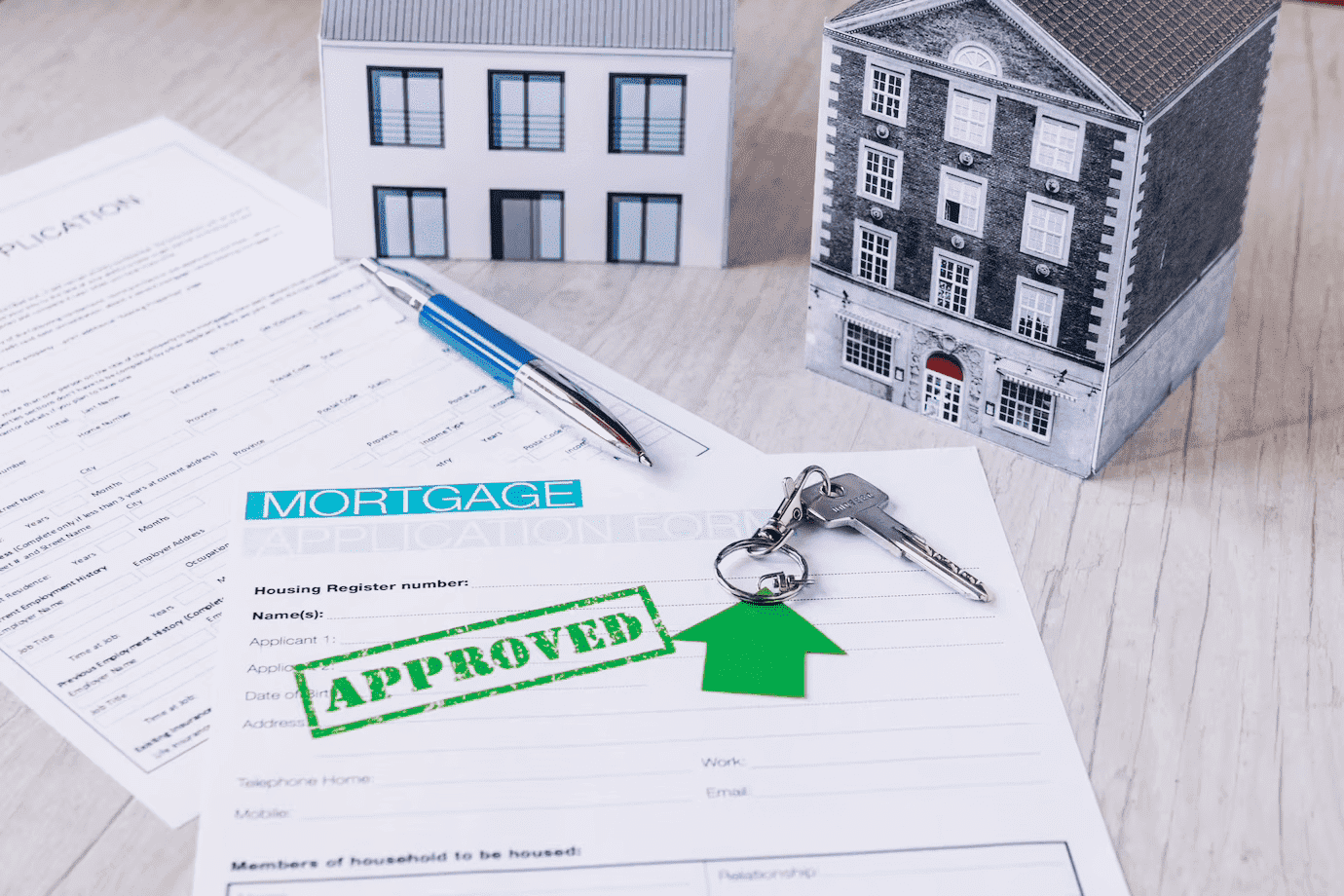
Buying a home is a significant milestone, and understanding the mortgage process is crucial for a smooth home-buying experience. One key aspect you’ll want to understand is mortgage pre approval. It’s a vital step that paves the way for your home search and serves as a testament to your financial capability.
This comprehensive guide will walk you through the ins and outs of mortgage preapproval, helping you confidently navigate the process. We’ll cover the differences between preapproval and prequalification, the benefits for home buyers and real estate agents, and tips to improve your chances of getting preapproved.
Understanding Mortgage Preapproval
So, what exactly is mortgage pre approval, and why does it matter? Let’s explore the meaning of mortgage preapproval, how it differs from prequalification, and its importance in home buying.
What is a Mortgage Preapproval?
Mortgage pre-approval is a lender’s formal commitment to offering you a loan up to a specific amount based on a thorough review of your financial situation. Factors like your credit score, employment history, and debt-to-income ratio are considered.
Preapproval vs. Pre Qualification
Now, let’s clarify the distinction between mortgage preapproval and prequalification. These two serve different purposes and carry different weights in the home-buying process.
Prequalification
Prequalification is an informal, preliminary assessment of your eligibility for a mortgage. It’s based on self-reported financial information and doesn’t involve a credit check or extensive documentation. Prequalification can be a helpful starting point to gauge your borrowing power, but it’s not as reliable as preapproval.
Preapproval
On the other hand, preapproval is a more in-depth evaluation that requires verifying your financial information, including credit checks and document submission. With pre-approval, you get a conditional commitment from the lender for a specific loan amount. This makes you a more attractive buyer to sellers, showing that you’re serious and financially prepared.
Why is a Preapproval for a Mortgage Important?
Let’s look into why mortgage preapproval is essential in home buying and the key advantages it offers prospective buyers. Here’s what you need to know:
Streamlines the Home Buying Process
Mortgage preapproval can significantly streamline your home search. With a preapproved mortgage loan amount, you can focus on properties that match your budget, avoiding homes out of your price range. Additionally, it can expedite the mortgage application process, as you’ve already provided the necessary documentation and information to the lender.
Helps You Determine Your Budget
By getting pre-approved, you’ll clearly understand how much you can afford. This helps you set a realistic budget for your home search and ensures that you don’t waste time looking at properties beyond your financial reach.
Demonstrates Your Financial Capability
A preapproval letter is a powerful tool that showcases your financial strength. Sellers and real estate agents are more likely to take you seriously when you have a preapproval letter, as it indicates that you can secure financing for the home purchase.
Increases Bargaining Power
Having preapproval letters can give you an edge in negotiations with sellers. It demonstrates you’re financially prepared and ready to buy, which may lead to favorable terms.
As you navigate the home-buying process, explore other financing options and learn all about reverse mortgage. This will give you a broader view of your choices.

What are the Benefits of a Mortgage Preapproval
Mortgage preapproval offers a range of benefits, not just for home buyers but also for real estate agents. Let’s break down these advantages and see how they contribute to a smoother home-buying experience.
For Home Buyers
As a prospective home buyer, mortgage preapproval can make a difference. Here’s how:
- Helps you focus on homes that fit your budget: Preapproval gives you a clear picture of your borrowing power. This allows you to concentrate on properties within your price range. This narrows your search and prevents wasted time on homes you can’t afford.
- Makes you more attractive to sellers: When you’re preapproved, sellers and their agents see you as a serious buyer ready to move. This can increase your chances of having your offer accepted, especially in competitive markets.
- Saves time and reduces stress: Mortgage preapproval streamlines the home-buying process. It eliminates the need to secure financing after making an offer. This can reduce stress and expedite the path to homeownership.
- Provides a clear understanding of the cost of homeownership: Preapproval helps you grasp the full financial impact of buying a home. This includes the monthly payment, interest rates, and closing costs. This knowledge prepares you for the financial responsibilities of homeownership.
For Real Estate Agents
Mortgage pre approval doesn’t just benefit home buyers; it’s also a valuable tool for agents. Here’s why:
- Helps agents work with serious buyers: Pre-approved clients demonstrate a genuine commitment to purchasing a home. This allows agents to focus their efforts on clients who are ready and able to buy, making the process more efficient.
- Demonstrates the financial capability of the buyer: A preapproval letter offers proof of a buyer’s financial strength, giving agents confidence that their client can secure financing for a home purchase.
- Streamlines the buying process: With preapproved clients, agents can more easily navigate the home buying process. Preapproval eliminates potential financing roadblocks, making the journey from offer to closing smoother and faster.
- Enables agents to identify potential financing issues: Mortgage preapproval allows agents to spot potential financing issues before they become deal-breakers. With this, agents can help clients resolve them and keep the home-buying process on track.
How Long Does it Take to Get Mortgage Pre Approval?
Now, the question is: how long does it take to get mortgage pre approval? This is essential to ensure a smooth homebuying experience. Here’s what to expect:
Preapproval Timeline
Obtaining preapproval commonly takes a few days or even a few weeks, depending on the lender and your financial situation. It’s a good idea to get preapproved before starting your home search. This way, you can make an offer when you find the right property.
Closing Timeline
The closing process can take 30 to 60 days from the date you sign a purchase agreement. This time frame may vary depending on the loan type, underwriting requirements, and any contingencies in the contract.

What is the Relationship Between Preapproval and Mortgage Rates
Understanding mortgage rates can be tricky, but knowing how preapproval affects those rates can give you a leg up. The preapproval process is essential to determining the mortgage rate you’ll receive. Here’s how it connects:
- Preapproval and interest rates: When mortgage lenders evaluate your financial health during preapproval, they use that information to set an interest rate for your mortgage. A robust financial profile leads to a lower interest rate, saving you money.
- Locking in a favorable mortgage rate: Once preapproved, you can lock in your mortgage rate. This protects you from potential rate increases while you continue your home search. Knowing that your rate won’t suddenly spike can offer peace of mind.
How Preapproval Affects Your Mortgage Interest Rate
Several factors influence the mortgage interest rate you’ll receive. Here are the key components lenders consider:
- Credit score: Your credit score is critical in determining your mortgage rate. Higher credit scores typically result in lower interest rates. Lower scores can lead to higher rates.
- Down payment: A bigger down payment may help you secure a lower interest rate. This shows lenders you have a significant financial stake in the property.
- Debt-to-income ratio: Lenders want to ensure you can comfortably afford your mortgage payments. A lower DTI ratio implies that you have the financial stability to manage your mortgage. This can result in a more favorable rate.
- Employment history: A stable and consistent employment history can also lead to better mortgage rates. This demonstrates your ability to maintain a steady income.
How to Lock in a Favorable Mortgage Rate
Securing the best mortgage rate possible is crucial for your long-term financial well-being. Here are some tips on how to lock in a great rate:
Rate Lock Agreement
Work with your lender to establish a rate lock agreement. This will guarantee your interest rate for a specified period, typically 30 to 60 days.
When to Lock in a Rate
The optimal time to lock in your rate is when you believe interest rates are at their lowest point. This can be difficult to predict, so consult your lender or financial advisor for guidance.
How Long to Lock in a Rate
Your rate lock period should be long enough to cover the time it takes to find a home, negotiate the purchase price, and close on the property. If you need an extension, be aware that there may be additional fees.
How to Get the Best Rate
To secure the best mortgage rate, focus on improving your financial profile. Boost your credit score, save for a larger down payment, reduce your DTI ratio, and maintain a steady employment history.
Also, understand the different types of loans available and how many mortgages can you have. This can help you make an informed decision and secure the most favorable rate.

How to Get Preapproved for a Mortgage
Now that we’ve learned much about mortgage pre approval, let’s discuss the process of getting preapproved. We’ll cover the requirements, necessary documents, and the steps to secure preapproval for a mortgage.
Mortgage Preapproval Process
First, you should understand the mortgage preapproval process to understand what you’re doing. Here’s a step-by-step breakdown of the preapproval process:
- Initial consultation: Contact multiple lenders to discuss your financial situation and compare loan options. Also, consider researching the pros & cons of private mortgage lenders to determine the most suitable financing option for your needs.
- Submitting an application: Once you’ve chosen a lender, you must complete a mortgage preapproval application and provide the required documentation.
- Credit check and underwriting: The lender will review your credit report and your financial information to determine your eligibility for a mortgage. This process can take several days to a few weeks.
- Conditional approval: If your application meets the lender’s criteria, you’ll receive a conditional mortgage preapproval letter. It specifies the home loan amount, interest rate, and other terms. This letter is typically valid for 60-90 days.
- Final approval: Once you’ve found a property and made an offer, the lender will review your application, including a property appraisal. If everything checks out, you’ll receive final approval and can proceed with closing.
Preapproval Requirements
Lenders have specific criteria they consider when evaluating your preapproval application. These requirements include:
Credit Score
Lenders normally look for a score of 620 or higher for conventional loans. However, government-backed loans like FHA and VA may have more lenient credit score requirements. Remember that a higher credit score can lead to better mortgage terms and interest rates.
Debt-to-Income Ratio
Your DTI or debt-to-income ratio is the percentage of your monthly income used to cover your debt payments. Lenders usually prefer a DTI ratio of 43% or lower, indicating a lower risk of default.
Employment History
Stable employment history demonstrates your ability to maintain a steady income. Lenders generally look for at least two years of continuous employment. However, exceptions can be made for career changes or other circumstances.
Down Payment
The required down payment varies based on the loan type and the lender’s guidelines. For conventional loans, a down payment of at least 5-20% is standard. While government-backed loans may have lower down payment requirements.
Necessary Documents
To verify your financial situation, lenders will require several documents. Be prepared to provide:
- Personal information: Proof of identity, such as a driver’s license or passport and your Social Security number.
- Income verification: Pay stubs, W-2 forms, or tax returns from the past two years to confirm your income.
- Asset documentation: Bank statements, investment accounts, and other financial assets to demonstrate your ability to cover the down payment and closing costs.
- Employment verification: A letter from your employer confirming your employment status and income or contact information for your employer to verify this information.
- Other documents: Depending on your situation, additional documentation may be required, like divorce decrees, bankruptcy paperwork, or proof of rental history.

Mistakes to Avoid When Seeking Preapproval
When seeking mortgage preapproval, several common mistakes can hinder the process. Awareness of these potential pitfalls makes you better prepared to navigate the preapproval process easily.
Applying for Credit Before Getting Preapproved
Taking on new credit before getting preapproved for a mortgage can negatively impact your credit score. This causes lenders to view you as a higher risk. Therefore, resulting in higher interest rates or even denial of your mortgage application. To avoid this issue:
- Refrain from applying for new credit cards, loans, or other lines of credit before seeking pre-approval.
- Focus on paying down existing debt and improving your credit score.
Changing Jobs Before Preapproval
Lenders value stable employment history when assessing your financial profile. Changing jobs just before seeking preapproval can raise red flags. This leads to potential issues with your mortgage application. Prevent this by:
- Avoid job changes during the preapproval process, if possible.
- If you must change jobs, be prepared to explain the reasoning and provide proof of your new income.
Making Major Purchases Before Preapproval
Making large purchases before preapproval can increase your DTI ratio and decrease your available funds for a down payment. This negatively impacts your mortgage application. To sidestep this problem:
- Hold off on major purchases, such as vehicles or expensive appliances, until you’ve been preapproved and secured a mortgage.
- Focus on saving for your down payment and reducing your overall debt.
Failing to Disclose Important Financial Information
Withholding crucial financial information from your lender can lead to delays or even make you denied to get a mortgage preapproval. To ensure a smooth preapproval process:
- Be transparent and honest with your mortgage lender about your gross monthly income, debts, and assets.
- Provide all requested documentation on time to avoid unnecessary delays.
Conclusion
As you can see, mortgage pre approval is an essential step in home buying that shouldn’t be overlooked. By understanding the requirements and following the tips, you can position yourself for success in the competitive housing market. With preapproval for a mortgage in hand, you’ll be a more attractive buyer, increasing your chances of securing your dream home.
If you’re ready to take the next step in your home-buying goal, HOMESbyARDOR is here to help. Our dedicated team of real estate agents will work with you to find the perfect property that meets your needs and budget.
With our extensive portfolio of properties, including villas, apartments, and more, we’re confident that we can help you find your ideal home. Contact us today to start the exciting process of finding your dream home!

In her 25-year career, Steph Wilkinson has been involved in the acquisition, marketing and sales of over $3 Billion dollars of residential real estate. A number of years ago, Steph transitioned into Brokerage Leadership for National real estate brands and tech start-ups. She has served as a Business Strategist for real estate agents and brokerages alike and is also a real estate coach and trainer. In her new role with the Iconic Team, Steph will be responsible for the growth of the team and will be working with all of our agents to increase their productivity and bottom line.




